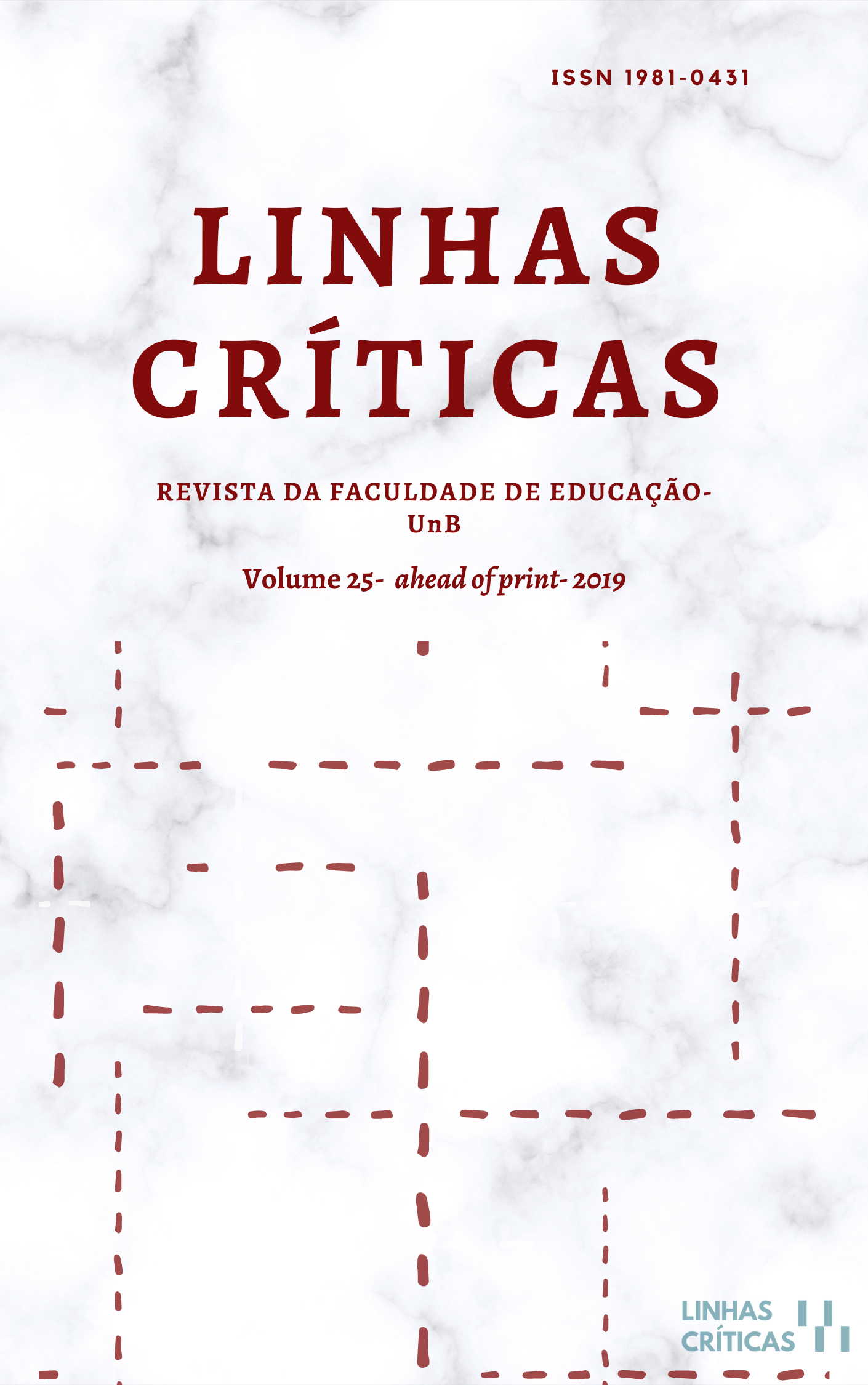Pedagogical intervention cultures on the recognition of the right to education
DOI:
https://doi.org/10.26512/lc.v25.2019.22498Keywords:
Right to education, Pedagogical Intervention, Recognition of RightsAbstract
The text aims at reflecting on how the right to education has been conceived, lived and perceived by teachers of Basic Education and how practices of pedagogic intervention favor their recognition. The reflections consider narratives produced by teachers working in the Elementary School of a Brazilian municipal public network in southern Brazil. Documentary analysis, semi-structured instrument and Focal Group were used in data construction. Among the findings of the research are five cultures of pedagogical intervention.
Downloads
References
Andrade, M. (2013). É a educação um direito humano? Em busca de razões suficientes para se justificar o direito de formar-se como humano. Educação, 36(1), 21–27. Retrieved from http://revistaseletronicas.pucrs.br/ojs/index.php/faced/article/view/12294
Bobbio, N. (1992). A era dos direitos. (C. N. Coutinho, Trans.) (11th ed.). Rio de Janeiro: Elsevier.
Botía, A. B. (2002). “¿De nobis ipsis silemus?”: Epistemología de la investigación biográfico-narrativa en educación. Revista Electrónica de Investigación Educativa, 3(1), 1–26. Retrieved from https://redie.uabc.mx/redie/article/viewFile/49/91
Brasil. (1990). Lei no 8069, de 13 de julho de 1990. Dispõe sobre o Estatuto da Criança e do Adolescente. Retrieved from www.planalto.gov.br/ccivil_03/LEIS/L8069.htm
Brasil. (1996). Lei no 9394, de 20 de dezembro de 1996. Estabelece as diretrizes e bases da educação nacional. Retrieved from http://www.planalto.gov.br/ccivil_03/Leis/L9394.htm
Candau, V. M. F., & Sacavino, S. B. (2013). Educação em direitos humanos e formação de educadores. Educação, 36(1), 59–66. Retrieved from http://revistaseletronicas.pucrs.br/ojs/index.php/faced/article/view/12319
Cunha, A. G. (2012). Dicionário etimológico da língua portuguesa. Rio de Janeiro: Lexikon. Retrieved from http://ucs.bv3.digitalpages.com.br/users/publications/9788586368899/pages/363
Freire, P. (2013). Pedagogia da autonomia: Saberes necessários à prática educativa (45th ed.). Rio de Janeiro: Paz e Terra.
Honneth, A. (2003). Luta por reconhecimento: A gramática moral dos conflitos sociais. (L. Repa, Trans.). São Paulo: Editora 34.
McCowan, T. (2011). O direito universal à educação: Silêncios, riscos e possibilidades. Praxis Educativa, 6(1), 9–20. https://doi.org/10.5212/PraxEduc.v.6i1.0001
Moraes, R., & Galiazzi, M. do C. (2007). Análise textual discursiva. Ijuí: Editora Unijuí.
Oliveira, M. K. de. (1997). Vygotsky: Aprendizado e desenvolvimento um processo sócio-histórico. São Paulo: Scipione.
Reale, M. (2002). Lições preliminares de direito (27th ed.). São Paulo: Saraiva.
Vigotskii, L. S., Luria, A. R., & Leontiev, A. N. (2001). Linguagem, desenvolvimento e aprendizagem. (M. P. Villalobos, Trans.) (7th ed.). São Paulo: Ícone.
Published
How to Cite
Issue
Section
License
Copyright (c) 2019 Linhas Críticas

This work is licensed under a Creative Commons Attribution 4.0 International License.
Authors who publish in this journal agree to the following terms:
-Authors maintains the copyright and grants the journal the right of first publication, the work being simultaneously licensed under the Creative Commons Attribution License which allows the sharing of the work with recognition of the authorship of the work and initial publication in this journal.
- Authors are authorized to enter into additional contracts separately, for non-exclusive distribution of the version of the work published in this journal (eg publish in institutional repository or as a book chapter), with acknowledgment of authorship and initial publication in this journal.
-Authorers are allowed and encouraged to publish and distribute their work online (eg in institutional repositories or on their personal page) at any point before or during the editorial process, as this can generate productive changes as well as increase the impact and the citation of published work (See The Effect of Free Access).



